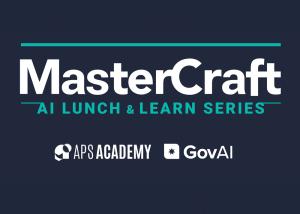Lunch and Learn - Session 11: Turn plain text into coded data using AI

The new API based coding capability developed by the ABS makes coding textual data to ABS structured classifications easier, faster and cheaper. Using ML trained models, the Coding Service uses cloud compute for power and scale to achieve highly automated, high-quality coding. This service supports improved coherent data coding across the Australian data landscape, using the latest classification versions available. The service can code single records in real-time, supporting online surveys and website forms. It can also quickly and efficiently code (or recode) large datasets in batches, up to millions of records.
The ML models make predictions by learning how the ABS applies the occupation classifications against the way Australian people describe their jobs and the tasks they do. During the training process, the models learn to map certain words, or combinations of words, to return specific occupation codes for given input text. The models were trained on millions of de-identified occupation responses in the Census, so the service can recognise and code occupations described in the language and broad vocabulary used by Australians themselves - including misspellings and common colloquial terms.
Presenter

Stirling Jones, Product Owner, Whole of Australian Government (WoAG) Coding Capability Project.
Stirling joined the ABS in July 2010. He worked in Census 2011, Qld State and Territory Statistical Services, and Transport and Tourism roles, before joining the Statistical Infrastructure Branch, managing the Demographic Standards and Data Coding Teams. For the past 2.5 years he has been the Product Owner for the WoAG Coding Capabilities Project. He is responsible for establishing, maintaining and realising a clear vision for the product, and articulating this vision to the technical, operational and business teams involved.
His primary responsibility is to ensure the project team and suppliers deliver high-quality and high-value products, aligning to organisational goals and user needs. This requires a deep understanding of end-users and stakeholders to guide the development team’s work, and a focus on actively engaging stakeholders to ensure clear and achievable deliverables for the project, resulting in a product that is relevant and fit-for-purpose. As Artificial Intelligence (AI) and Machine Learning (ML) are dynamic and evolving fields, Stirling keeps an eye on industry trends and technology advancements, bringing appropriate opportunities to bear as they emerge.
Facilitator
Daniel Parris
Daniel Parris is an Engagement Manager with GovAI, a whole-of-government program in the Department of Finance working to enable responsible and effective AI adoption across the Australian Public Service (APS). In his role, Daniel works with agencies to accelerate AI adoption through information sharing, capability building, and supporting cross-agency connections. He also oversees the APS AI Use Case Library, which is a central GovAI resource showcasing real-world AI applications in Government, promoting reuse, and fostering innovation across the public sector.
Before joining GovAI, Daniel worked across governance, sustainability, and policy settings. This included work on APS climate reporting, ESG research and methodology design for global investors, and academic research on sustainable finance and climate risk. Daniel has also facilitated group programs in diverse settings, from interactive public service workshops to immersive cultural experiences in remote Indigenous communities.
Participant benefits
Learn how the ABS took an idea and turned it into a reality using ML technology.
Understand the Coding Service models were developed and trained and quality assured.
Consider how the service works for users and the difference it can make to the Australian data landscape (and the coding teams that have to produce this data).
Suitable for
All Staff
Category and User level
This learning experience aligns with the Digital Profession at the Foundation level.
Price
Free of charge.
Additional Information
- To enrol in this session you will need a valid APSLearn profile.
- Steps on how to create an APSLearn profile or to view FAQs can be found here.
- If you have moved Departments or you have multiple APSLearn profiles, you can request to merge your profiles here.
- If your training venue is at MoAD, please refer to the directional map to assist with locating the training room.
* Capacity limits may apply. Please log into APSLearn to check availability.
- If the session is full or none of the additional sessions are suitable, you can express your interest, through APSLearn, for this event. You will be added to a mailing list to be notified when a new session becomes available.



